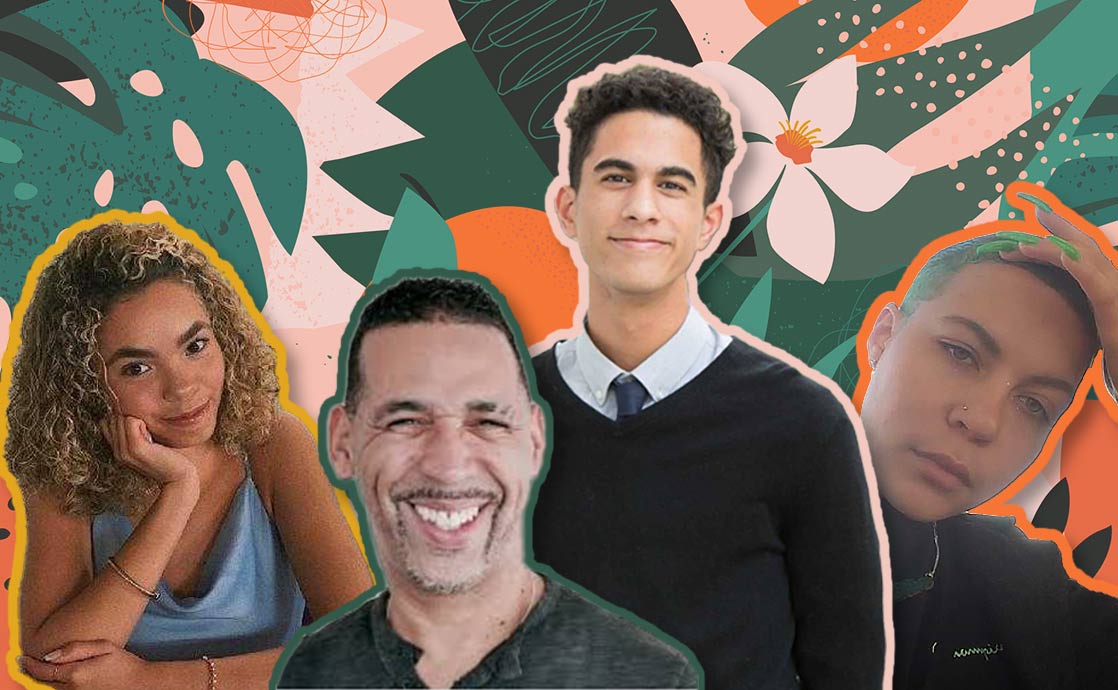In the intricate tapestry of contemporary society, biracial families stand as poignant manifestations of unity amid diversity, embodying the potential to transcend the pervasive shadow of racism. The Bahá’í Faith, with its foundational principles rooted in the oneness of humanity, offers a profound lens through which to examine the interplay between biracial identities and the quest to eradicate systemic racism. The following exploration elucidates how biracial families can serve as catalysts for social change, engendering a broader understanding of racial equality while navigating the inherent complexities of their multifaceted identities.
The Concept of Unity in Diversity
The Bahá’í teachings underscore a fundamental tenet: the oneness of humanity. This principle posits that all individuals, irrespective of their racial or ethnic backgrounds, are part of a single human family. For biracial families, this ideal can be both a source of strength and a challenge. They epitomize the merging of diverse cultural lineages, showcasing the beauty of variety while simultaneously confronting societal presumptions about race. By fostering environments where children can celebrate their dual heritages, biracial families exemplify the Bahá’í ideal of unity in diversity. Through such familial structures, the pervasive narratives of division and discord can be subverted, replaced instead with a tapestry of mutual appreciation and respect.
Cultivating Empathy and Understanding
Empathy serves as a crucial conduit for dismantling racism; it allows individuals to appreciate the lived experiences of those from disparate backgrounds. Biracial families are uniquely positioned to cultivate empathy among their members. By sharing personal stories that reflect the realities of navigating two cultural spheres, parents can instill a sense of awareness in their children. This dialogue promotes an understanding that transcends superficial categorizations of race, allowing for deeper connections and the acknowledgment of shared humanity. Such discussions are vital in a world that often seeks to categorize individuals by race rather than celebrating their multifaceted identities.
The Role of Education and Consciousness
Education about racial equality is paramount in fostering a society that is conducive to the growth and maturation of biracial children. Bahá’í teachings accentuate the importance of equipping individuals with knowledge that empowers them to challenge prejudiced ideologies. Within the family unit, this translates into deliberate discussions about race, racism, and social justice. Engaging children in conversations regarding historical injustices allows them to grasp the magnitude of systemic racism while simultaneously exploring pathways to contribute to its eradication. Through an educational lens imbued with consciousness, biracial families can cultivate a new generation of advocates who are dedicated to fostering equity and justice.
Creating Intercultural Connections
Biracial individuals often navigate two distinct cultural landscapes, positioning them as ambassadors of intercultural connection. Their ability to traverse diverse cultural contexts allows them to promote dialogues that bridge gaps between racial communities. Such connections are vital in the pursuit of dismantling racial barriers. Bahá’í teachings encourage these interactions, advocating for harmonious relationships across cultures. Families can actively engage in multicultural events, fostering an appreciation for various traditions while combatting cultural mono-narratives that perpetuate division. By nurturing relationships with others from diverse backgrounds, biracial families can lead by example, demonstrating the beauty found in shared experiences and understanding.
The Influence of Role Models
Role models play a significant role in shaping the realities of biracial individuals. The visibility of successful biracial figures who embrace their multifarious identities can inspire and validate the experiences of those navigating similar paths. Through the lens of the Bahá’í Faith, role models are vital embodiments of the principles of unity and service. These individuals can catalyze a reevaluation of societal norms and challenge the stereotypes associated with biracial identities. By highlighting the successes and struggles of biracial individuals in various fields, biracial families can encourage resilience and empowerment in their children, reinforcing the idea that they are not mere products of their heritage but dynamic agents of change.
Promoting Advocacy and Activism
The engagement of biracial families in social justice activism is essential in the broader movement to end racism. Commitment to advocacy aligns with the Bahá’í call for social transformation, wherein individuals are encouraged to actively participate in initiatives structuring a more equitable society. Families can galvanize around causes that resonate with their values, utilizing their unique perspectives to inform and mobilize communities. By participating in collective efforts to advocate for racial justice, biracial families can exemplify the power of unified action, highlighting that the fight against racism is indeed a family affair—one that necessitates collaboration, empathy, and a shared vision for a just tomorrow.
Conclusion: A Familial Legacy of Hope
In conclusion, the intersection of biracial identities and the teachings of the Bahá’í Faith provides a fertile ground for challenging the pervasive constructs of racism. By embodying the principles of unity, cultivating empathy, emphasizing education, fostering intercultural connections, nurturing role models, and advocating for social justice, biracial families can contribute significantly to the ongoing struggle for equality. In this familial legacy lies a profound promise—a testament to the capacity of love, understanding, and shared purpose to illuminate pathways toward racial harmony. As society embraces these ideals, the narrative of racism can be transformed from one of division to a celebration of our shared humanity, marking the end of racism as not merely a distant aspiration but a realizable truth.
